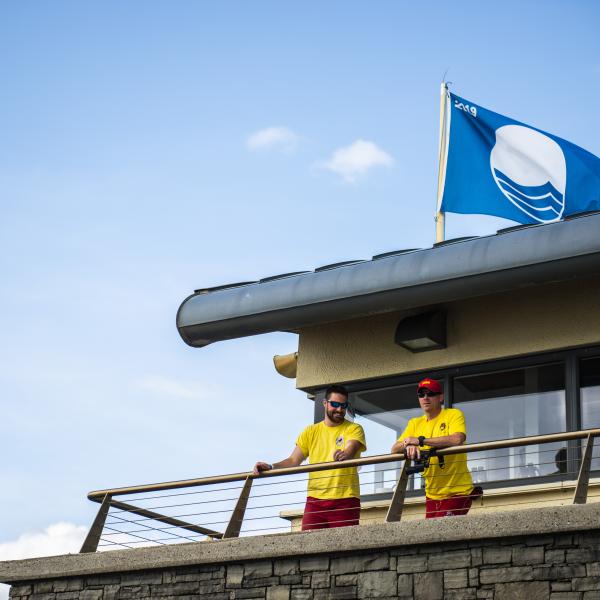
Water safety appeal over Easter break
Ahead of the Easter weekend, the Coast Guard, RNLI and Water Safety Ireland are appealing for people to take some basic precautions to stay safe when they visit the coast or planning an activity on or near the water.
As the clocks change and the evenings are getting longer and brighter, more people are expected to get out on the water. Knowing some simple water safety advice can help prevent an accident or tragedy.
Weather conditions over the weekend are expected to be mixed with a combination of sunny periods followed by rain and showers. Water temperatures at this time of year are relatively cold and inexperienced or occasional open water swimmers should take care to slowly climatise and carefully manage their time in the water. Always be alert to the risk of cold water shock.
If sailing or motorboating:
- Always wear an appropriate lifejacket
- Always carry a means of calling and signalling for help
- When engaging on any type of boating activity; Ensure there is an emergency action plan in place, and everybody has an onboard briefing
- Get the right level of training for your craft
- Always check the weather and tide times
- Make sure someone on the shore knows where you are going and who to call if you don’t return on time.
- Always operate your boat at a speed that is appropriate to the weather conditions and to the environment you are operating in.
Attention is also drawn to the Code of Practice for the Safe Operation of Recreational Craft a valuable source of information, advice and best practice operational guidance for owners, masters, operators and users of a range of pleasure and recreational craft operating in Irish coastal and inland waters. It can be viewed at www.safetyonthewater.gov.ie
Gerard O’Flynn, Coast Guard Operations Manager said: ‘After a protracted period of broken weather and with the advent of longer evening daylight from Sunday, many people are looking forward to getting out and about along the coast or on the water. Always check the weather forecast, ensure that you have a means of communication, plan your activity and ensure that a colleague is aware of your plans and expected return time. Please also be alert to the risk of becoming isolated by incoming tides on beaches or coastal area particularly if setting out during lower tides.’
Roger Sweeney, Water Safety Ireland’s Deputy CEO said: ‘Over the course of five Easter holiday periods, 12 people drowned accidentally, mainly while swimming, angling, or after falling in while walking. To stay safe, keep cold water swims brief and shallow, wear a lifejacket when angling on the shoreline or riverbanks, and stay away from the water's edge when out walking. With nearly one million children on school holidays, and many visiting friends and family living on farms and near lakes, rivers, canals, and beaches, constant adult supervision is essential for their safety.’
Linda-Gene Byrne, RNLI Water Safety Lead added: ‘We are approaching the time of year when we will see boats back on the water and many are now looking forward to a season of sailing. While we want everyone to enjoy themselves, we want them to do so safely. Mechanical failure is the single biggest cause of rescue call outs to sailing and motor cruisers, accounting for nearly 20% of all our lifeboat launches. Knowing your boat, carrying spares and being able to fit them could make the difference between having to call for help and being able to help yourself.’
If you see somebody in trouble on the water or along the coast or think that they are in trouble, use marine VHF radio Ch 16 or dial 112 and ask for the Coast Guard.